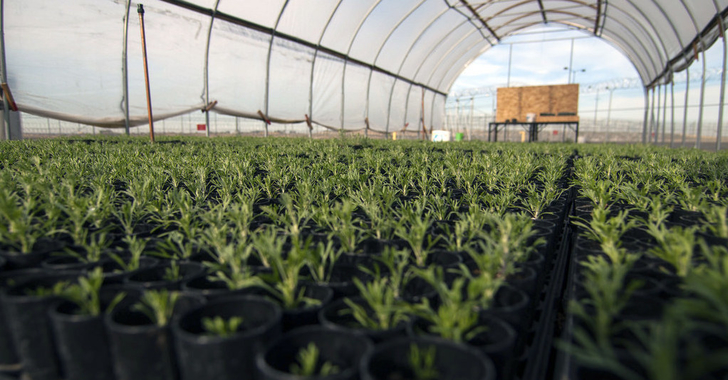Philadelphia’s prison system fights recidivism with butternut squash. While over-incarceration does nothing to make America safer, at least one state is working to make sure that inmates learn a skill that has been proven to keep them from returning to prison – organic farming.
Even the setting of the small prison farm is an odd juxtaposition to the concrete block and barbed wire image conjured by most penitentiaries. Though once a construction site, a three-acre farm replete with a winding creek with tributaries that empty into the Delaware river, fruit trees, and honey bees pollinating bushes, this is the place where inmates from a nearby minimum security prison spend much of their day learning new skills.
This season, the prison workers are pulling 753 winter squash from the ground, but they will also grow watermelon, peaches, eggplant, and figs. As part of the Washington State Department of Corrections’ Sustainability in Prisons Project they’ve become part of a more sustainable future for the earth, but for themselves, too.
The Philadelphia project boasts a state-of-the art composting facility, an organic farm, and an organic vocational farming program which gives inmates skills they can use once they are no longer incarcerated.
The benefits of the program are already becoming apparent. The office of Philadelphia Mayor Jim Kenney publicized that the program has diverted 685 tons of food waste a year into compost, saving the city more than $40,000 in landfill costs. The Environmental Protection Agency (EPA) also recognized the Philadelphia Prison System in this year’s national Food Recovery Challenge awards.
Additionally, the farm now utilizes more than 2 tons of food waste to make compost — they have so much, in fact, that they can no longer use it all at the prison farm, and can outsource it to flower beds on campus, and throughout the city.
Over 200 fruit trees were also donated and are now maintained on a tract of prison land.
The prisoners as well as the officers working at the prison are involved.
“Who would think that I’m a correctional officer and I have chickens?” says Officer Paul McCann, gesturing at a fenced-in square in the orchard where two roosters and 18 hens peck at cracked watermelons next to a Dumpster-turned-coop.
Most importantly, the program seems to discourage inmates from future criminal activity by actually giving them hope, and actionable skills to use ‘outside.’ The Philadelphia prison system has partnered with Temple University to offer a vocational certificate to any inmates who complete the organic farming and composting program. While the program is in its infancy, with only ten prisoners graduating thus far, they expect it to grow in popularity, and to have more graduates who finish the program soon.
With the demand for organic food booming around the globe, these skills could likely help to rebuild communities and give hope to more than just prisoners, but entire families who currently live in food deserts.
That means a few well-trained prisoners could help to feed more than 23.5 million people in the U.S (via UnderGroundReporter).
If you like this idea, be sure to share it with your friends and inspire someone you know. Anything becomes possible with just a little inspiration…

